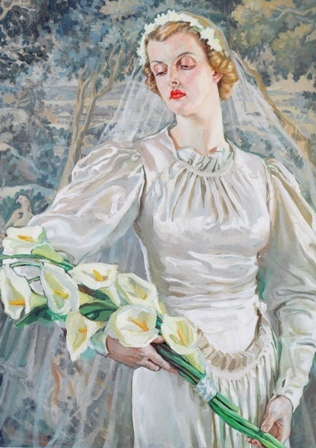
HILDA Rix Nicholas may not be a household name in Australian art history, but she’s about to be, with a new Centenary-inspired exhibition opening at the National Portrait Gallery this week.
Born in Ballarat in 1889, she travelled widely overseas between 1907 and 1926 and achieved considerable success as an artist.
Back in Australia in 1927, she came to Canberra to paint on Red Hill and Mount Pleasant. She married and moved her paintings, costumes and elegant French furniture and fittings to the property ‘Knock along,’ near Delegate in the Monaro. Aged 46 and pregnant, she built a French provincial style studio connected to the house by a garden that she designed and planted herself.
Hilda Rix Nicholas was not part of any group, movement or set and her art is not assigned to any school, setting her apart from most Australian women artists of the first half of the 20th century.
She continued her art practice while helping run the farm and devoting herself to the physical, intellectual and aesthetic development of her son.
In “Paris to Monaro,” the artist’s paintings and drawings of family and friends in the Monaro landscape will be shown for the first time amongst artefacts, furniture, garments, souvenirs and ephemera brought directly from the studio at ‘Knock along.’
Her studio still stands in the paddocks—as the gallery says, “its mediaeval fireplace, musicians’ gallery and pantomime stage unchanged, its canvases rolled and its drawers of art materials undisturbed.” Part of this incongruous space will be recreated at full scale in the show.
“Paris to Monaro: pleasures from the studio of Hilda Rix Nicholas,” at the National Portrait Gallery May 31 to August 11.
Who can be trusted?
In a world of spin and confusion, there’s never been a more important time to support independent journalism in Canberra.
If you trust our work online and want to enforce the power of independent voices, I invite you to make a small contribution.
Every dollar of support is invested back into our journalism to help keep citynews.com.au strong and free.
Thank you,
Ian Meikle, editor








Leave a Reply